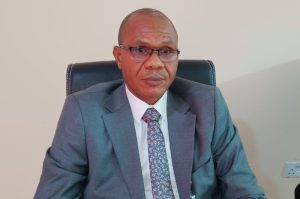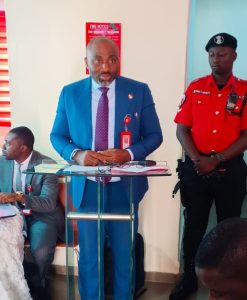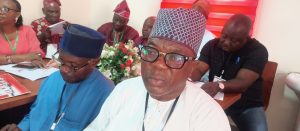EFCC Spokesperson Tasks Journalists on patriotism, Investigative Reporting

EFCC Spokesperson Wilson Uwujaren
Economic and Financial Crimes Commission, EFCC, Spokesperson, Wilson Uwujaren, has advised journalists to be patriotic and use their position to expose corrupt practices in the country.
The Head of Media and Publicity, EFCC gave the advice on Thursday at a one-day media training/workshop organized by the EFCC for print/electronics/online reporters in Ilorin.
He stressed the need for journalists to go beyond written statements through in-dept and investigative reporting of events generally in the country.
He said his department expects journalists to reach his office to confirm some reports and get further details.
In one of the presentations, titled, “New trends in cybercrime: how not to become a victim” by Alex Ocheme of the EFCC, the commission said that cybercrime had eaten over $8 trillion of victims’ hard earned finances in the world.
He, however, said that legal bottleneck is one of the factors hindering cross border corruption investigation in the anti-corruption war.
Ocheme said that not all African countries, for example, had passed the law on cybercrime, adding that since one cannot compel those countries to try corruption offenders with such law, it means that, “the money stolen is gone”.
“Each nation is entitled to its laws. They are not necessarily there to work with you. Some countries are fast to assist you in the war against cybercrime while some are not. For instance, if the UAE is not ready to collaborate with you on a cybercrime investigation, it means the money lost is gone”, he said.
Also presenting paper on “Investigative Journalism and Nigeria’s fight Against Money Laundering, ACE 1, Dele Oyewale of EFCC said “as journalists, we owe our nation and the entire world an obligation of exposing every shadiness and criminal acts through our reporting.”
He said that investigative journalism requires penetration, exploration, intensification and exhaustive inquiries.
According to him, Investigative Journalism is a way to uncover what is covered, hidden, restricted, unknown and unimagined.
“Investigative Journalism is hinged on multiple- sources analysis and reporting. Reporting from a single source is not Investigative.
“Using information for extortion or blackmail is not Investigative reporting. This is according to Paul Radu, founder, Romanian Centre for Investigative Journalism.
“Investigative Journalism is not Paparazzi Journalism, not espionage. The focus is public interest and social justice.
“Nigeria’s fight against money laundering started with the establishment of the Economic and Financial Crimes Commission in 2003.
“The first money laundering case investigated by the EFCC was the N4.3billion scam of former Bayelsa State Governor DSP. Alamieyeseigha
“Alamieyeseigha was arrested by the metro police in London for money laundering in September 2005. The police reported that he had a total of $3.2 million in cash and his bank accounts. Further investigation revealed that he had four homes worth $15 million at different locations in London.
“Nearly all former governors tried by the EFCC in court had money laundering issues,” he said
Oyedele observed that investigative reporting of money laundering in Nigeria is very poor, saying that no strong lead has ever come from the media for the EFCC to work upon.




============
For More News Join Our WhatsApp Group With This Link: https://chat.whatsapp.com/CdPVxGOPHCI5Kd4ALZduZ7